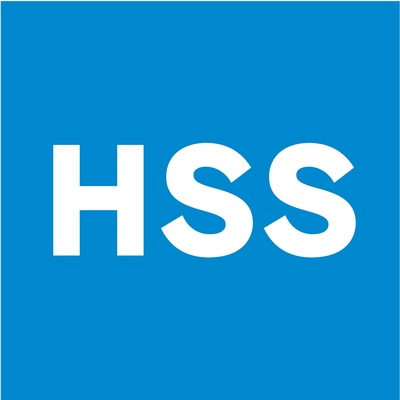At the 2019 American College of Rheumatology/Association of Rheumatology Professionals annual meeting in Atlanta, experts from the HSS Education Institute at Hospital for Special Surgery presented their method for developing and implementing effective educational programs for diverse patients with rheumatic conditions.
ATLANTA, Nov. 11, 2019 /PRNewswire/ -- At the 2019 American College of Rheumatology/Association of Rheumatology Professionals annual meeting in Atlanta, experts from the HSS Education Institute at Hospital for Special Surgery (HSS) presented their method for developing and implementing effective educational programs for diverse patients with rheumatic conditions.

HSS adopts the Community-Based Participatory Research (CBPR) approach to develop and implement impactful educational programs that increase the quality of life for people living with musculoskeletal and rheumatic conditions.
"Our process begins with a community health needs assessment so that we can better understand the needs of, and obstacles faced by people living with musculoskeletal and rheumatologic health conditions," said Titilayo Ologhobo, associate director of Outcomes, Public and Patient Education at HSS.
The community health needs assessment gathers input from the public and academic partners, patients, physicians and staff through a survey, community forums and community-partner engagement meetings. The input includes information about patients' health status, comorbidities, health behaviors, socio-demographic factors, access to care and preferred methods for receiving educational information. The results reveal our community's top health concerns and priorities. These insights inform the development of targeted community initiatives.
As part of the CBPR approach, evaluation of program results based on relevant outcome measures and the dissemination of findings to the community on an ongoing basis are critical steps. These appraisals shape future community needs assessments and improvements to programs.
"At the HSS Education Institute, our aim is to help patients take more control to self-manage their symptoms and give them the confidence to stay as active as possible," said Robyn Wiesel, associate director, Public and Patient Education at HSS. "A more educated patient is a more empowered patient. Our Community-Based Participatory Research Approach has allowed us to create and implement specialized programs that successfully address the needs of culturally, geographically and economically diverse patient populations."
For more information about free patient support and educational programs for people with musculoskeletal and rheumatologic health conditions, visit https://www.hss.edu/public-patient-education.asp.
About HSS
HSS is the world's leading academic medical center focused on musculoskeletal health. At its core is Hospital for Special Surgery, nationally ranked No. 1 in orthopedics (for the tenth consecutive year), No. 3 in rheumatology by U.S. News & World Report (2019-2020), and named a leader in pediatric orthopedics by U.S. News & World Report "Best Children's Hospitals" list (2019-2020). Founded in 1863, the Hospital has one of the lowest infection rates in the country and was the first in New York State to receive Magnet Recognition for Excellence in Nursing Service from the American Nurses Credentialing Center four consecutive times. The global standard total knee replacement was developed at HSS in 1969. An affiliate of Weill Cornell Medical College, HSS has a main campus in New York City and facilities in New Jersey, Connecticut and in the Long Island and Westchester County regions of New York State. In addition, HSS will be opening a new facility in Florida in early 2020. In 2018, HSS provided care to 139,000 patients and performed more than 32,000 surgical procedures, and people from all 50 U.S. states and 80 countries travelled to receive care at HSS. There were more than 37,000 pediatric visits to the HSS Lerner Children's Pavilion for treatment by a team of interdisciplinary experts. In addition to patient care, HSS leads the field in research, innovation and education. The HSS Research Institute comprises 20 laboratories and 300 staff members focused on leading the advancement of musculoskeletal health through prevention of degeneration, tissue repair and tissue regeneration. The HSS Global Innovation Institute was formed in 2016 to realize the potential of new drugs, therapeutics and devices. The HSS Education Institute is the world's leading provider of education on musculoskeletal health, with its online learning platform offering more than 600 courses to more than 21,000 medical professional members worldwide. Through HSS Global Ventures, the institution is collaborating with medical centers and other organizations to advance the quality and value of musculoskeletal care and to make world-class HSS care more widely accessible nationally and internationally. www.hss.edu.
![]() View original content to download multimedia:http://www.prnewswire.com/news-releases/hss-experts-share-best-practices-for-developing-and-implementing-effective-educational-programs-for-diverse-patients-with-rheumatic-conditions-300954830.html
View original content to download multimedia:http://www.prnewswire.com/news-releases/hss-experts-share-best-practices-for-developing-and-implementing-effective-educational-programs-for-diverse-patients-with-rheumatic-conditions-300954830.html
SOURCE Hospital for Special Surgery




